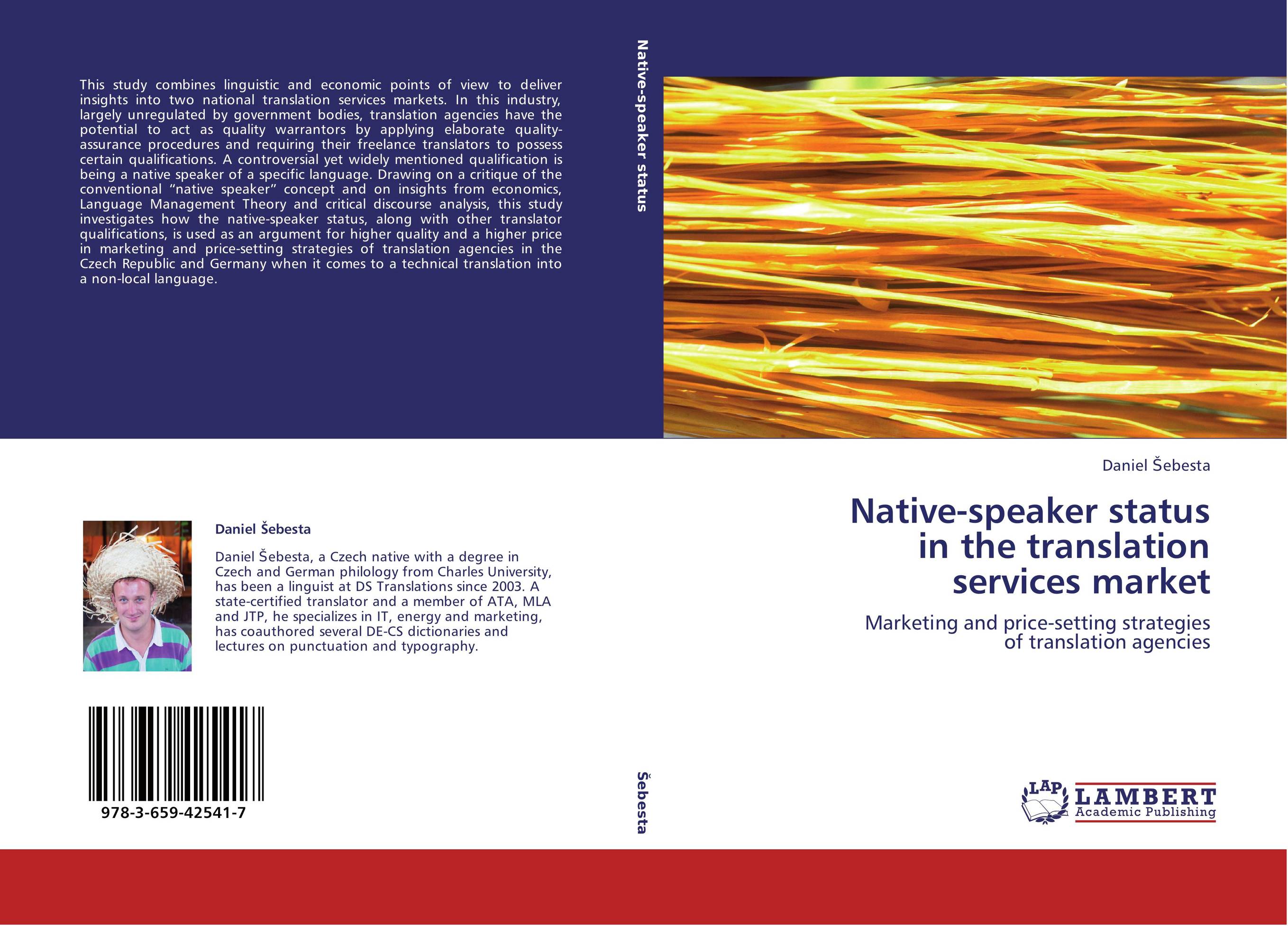| Поиск по каталогу |
|
(строгое соответствие)
|
- Профессиональная
- Научно-популярная
- Художественная
- Публицистика
- Детская
- Искусство
- Хобби, семья, дом
- Спорт
- Путеводители
- Блокноты, тетради, открытки
Native-speaker status in the translation services market. Marketing and price-setting strategies of translation agencies

В наличии
| Местонахождение: Алматы | Состояние экземпляра: новый |

Бумажная
версия
версия
Автор: Daniel ?ebesta
ISBN: 9783659425417
Год издания: 2013
Формат книги: 60×90/16 (145×215 мм)
Количество страниц: 164
Издательство: LAP LAMBERT Academic Publishing
Цена: 27870 тг
Положить в корзину
| Способы доставки в город Алматы * комплектация (срок до отгрузки) не более 2 рабочих дней |
| Самовывоз из города Алматы (пункты самовывоза партнёра CDEK) |
| Курьерская доставка CDEK из города Москва |
| Доставка Почтой России из города Москва |
Аннотация: This study combines linguistic and economic points of view to deliver insights into two national translation services markets. In this industry, largely unregulated by government bodies, translation agencies have the potential to act as quality warrantors by applying elaborate quality-assurance procedures and requiring their freelance translators to possess certain qualifications. A controversial yet widely mentioned qualification is being a native speaker of a specific language. Drawing on a critique of the conventional “native speaker” concept and on insights from economics, Language Management Theory and critical discourse analysis, this study investigates how the native-speaker status, along with other translator qualifications, is used as an argument for higher quality and a higher price in marketing and price-setting strategies of translation agencies in the Czech Republic and Germany when it comes to a technical translation into a non-local language.
Ключевые слова: native language, Native Speaker, translation services market, translation agencies, translator qualifications, Translation Quality, marketing discourse, Mystery Shopping, price-setting strategies, Language Management Theory



